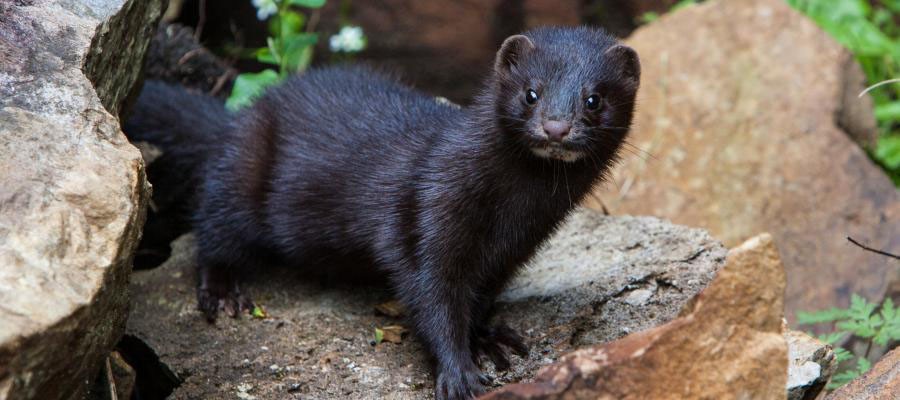ANIMAL rights group PETA says the sooner the book is closed on the “cruel and dangerous” industry of mink farming the better.
PETA – People for the Ethical Treatment of Animals – was reacting to the news that a Donegal mink farmer is to receive a share of a multi-million compensation package.
Tazetta Teoranta, based near Glenties, is one of three fur farms left on the island of Ireland. The others are in Laois and Kerry.
Cabinet approved on Tuesday legislation that will ban fur farming in the state as well as establishing a compensation scheme for premises that will have to close.
The three farmers will be paid for the closing down of their operations with aspects including asset value, redundancy payments and demolition fees to be considered.
It is understood there is a package in the range of €4 million to €8 million in place for 2022.
PETA’s Director Eliza Allen told the Donegal News that while it is right and proper that owners are compensated, the cruelty experienced by the animals they farm should not be forgotten.
Ms Allen said, “While we hope the government will pay farmers what is fair and reasonable, it is worth remembering that animals have long paid the ultimate price in the fur trade.

Director of PETA Elisa Allen says that while fur farmers should get what they are due, the cruelty experienced by the animals they farm should not be forgotten.
“The sooner we close the book on this cruel, dangerous industry in which minks are drowned, electrocuted and sometimes even skinned alive the better.”
There are approximately 120,000 mink on Ireland’s three remaining farms.
The new legislation, being brought forward by Minister for Agriculture, Food and the Marine Charlie McConalogue, will include a ban on the farming of cats, chinchillas, dogs, foxes, mink and weasels – including stoats – for their fur or skin.
The fur farming prohibition is not expected to begin until early in 2022, allowing the farmers to see out the 2021 season.
The commitment to prohibit the breeding of mink solely for their fur came to light when chief medical officer Dr Tony Holohan raised concerns that mink may carry a coronavirus variant.
While there were outbreaks of Covid-19 on farms in Denmark, Greece and the Netherlands in 2020, Irish mink were tested and the variant strain was not detected.
Workers across fur farms are mainly seasonal but there are approximately 10 to 15 permanent staff at the three farms, rising to double that number around the pelting season.
The Department of Agriculture believes there are “not more than 30” individuals who work in mink farms, including seasonal, short-term workers.
Export values have recently been running at about €2m per annum, but revenues have been steadily declining.
All the pelts produced in Ireland go to Helsinki and Stockholm.
Posted: 7:00 pm October 23, 2021










